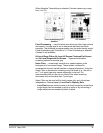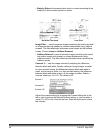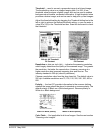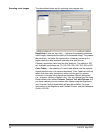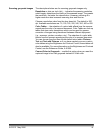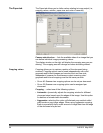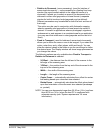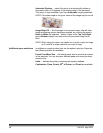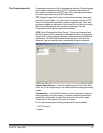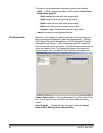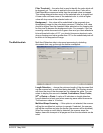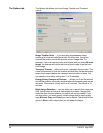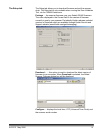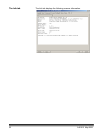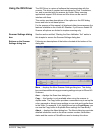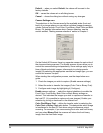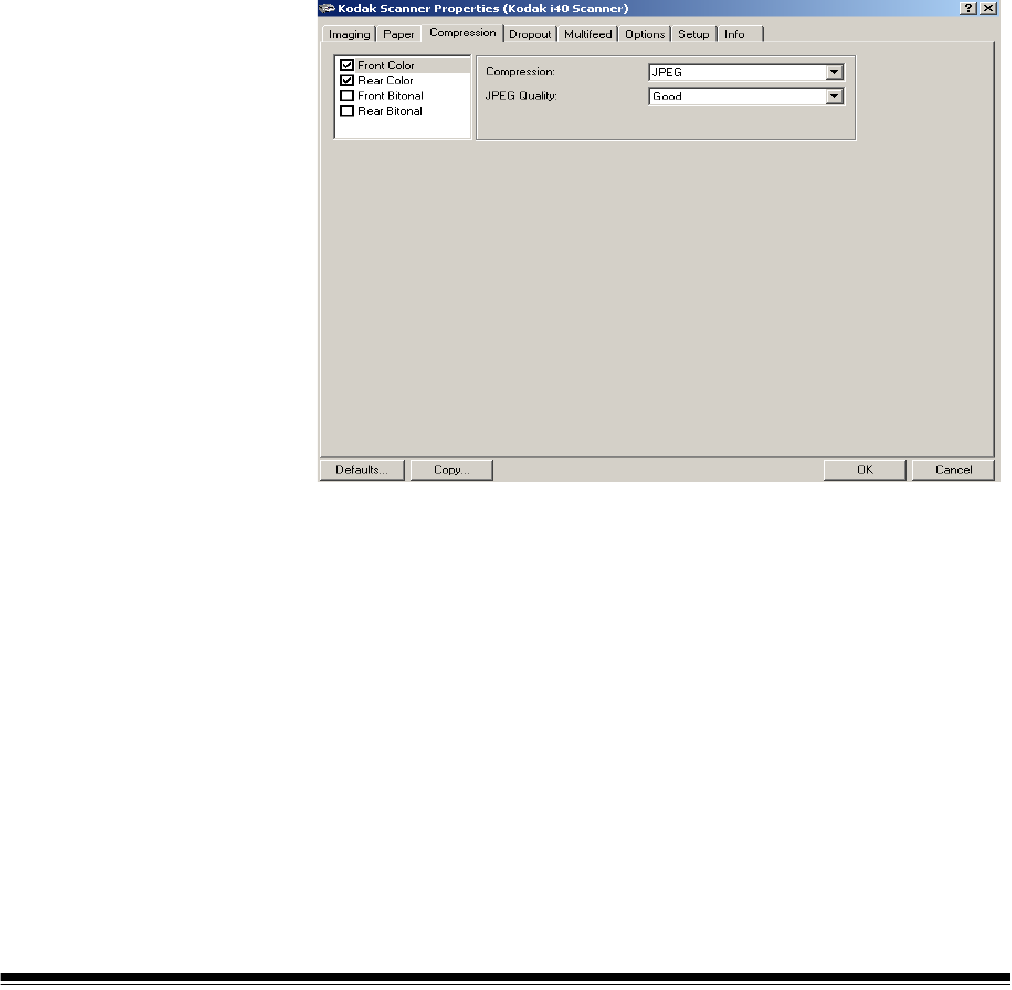
A-61512 May 2006 47
The Compression tab Compression squeezes a file to decrease the total size. Bi-tonal images
are normally compressed using a CCITT standard called Group IV,
often used in conjunction with TIFF files. Color and grayscale images
are often compressed using JPEG techniques.
TIFF (Tagged Image File Format) is a file format standard commonly
used for bi-tonal images. It is often used in conjuction with the CCITT
Group IV compression standard to reduce image file size. Color and
grayscale images can be saved in this format too, but they are usually
found uncompressed and are, therefore, quite large. Use the
Compression tab to select compression settings.
JPEG (Joint Photographic Editor Group). This group developed and
lent their name to a file compression standard for color and grayscale
images that is widely used by scanners, digital cameras and software
applications. On Microsoft Windows-based systems, a file with the
extension .jpg has normally been compressed using this standard.
Camera Selection box lists the available sides (Front Color, Rear
Color, etc.) of an image that you can define individual image processing
values.
Compression the i30/i40 Scanners can be configured to output bi-
tonal, grayscale, and color images in various supported formats and
resolutions independent of each other and each side of the image.
These options vary based on the type of scanner.
For bi-tonal scanning the following compressions are available:
• CCITT Group 4
• (none)



